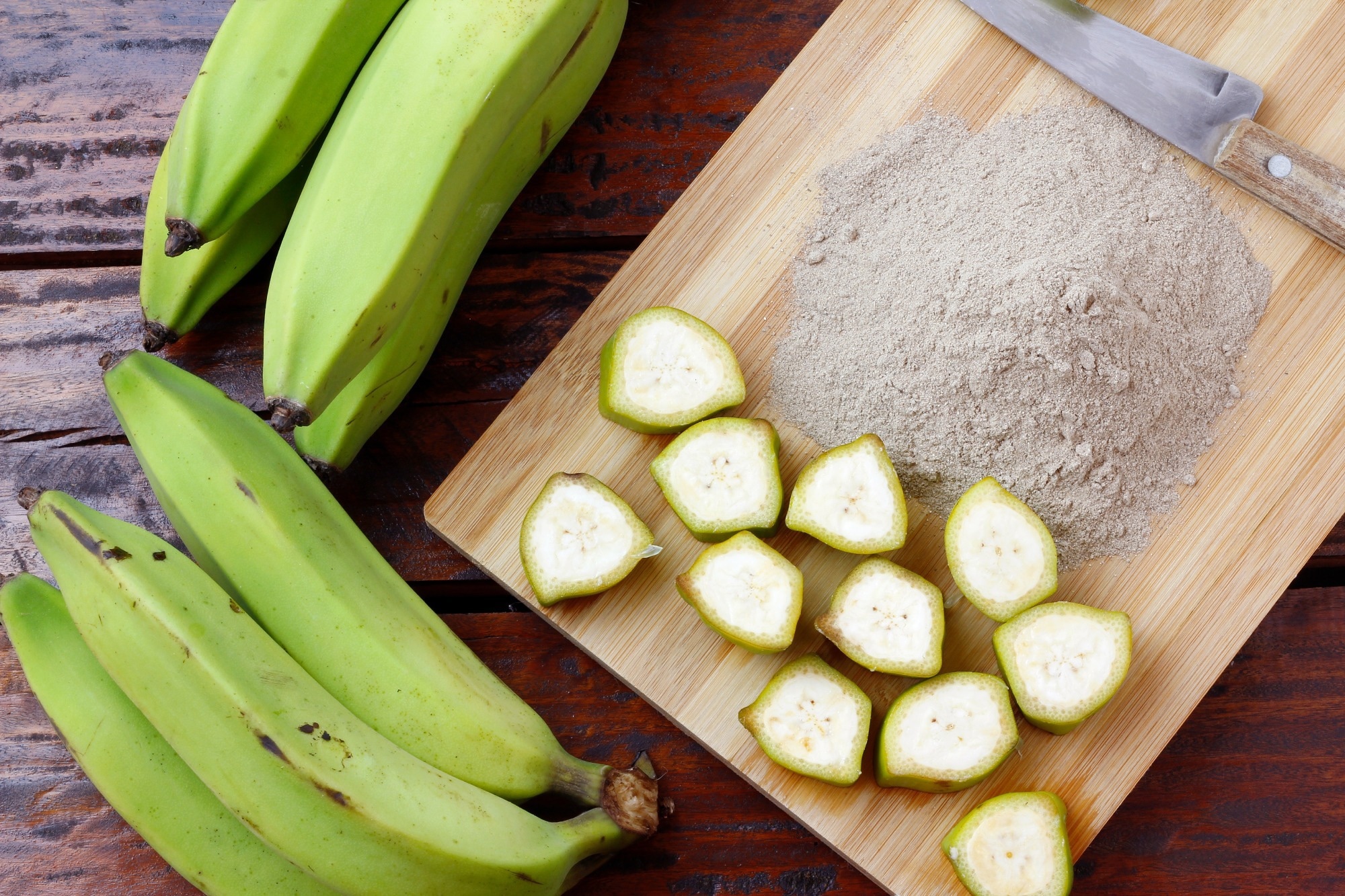In a recent review published in the journal Frontiers in Nutrition, a group of authors examined the health benefits of resistant starch (RS). It assessed the impact of food processing methods on its retention in plant-based foods, using clinical evidence and observational studies from 2010 to 2023.
 Study: Harnessing the power of resistant starch: a narrative review of its health impact and processing challenges. Image Credit: Adao / Shutterstock
Study: Harnessing the power of resistant starch: a narrative review of its health impact and processing challenges. Image Credit: Adao / Shutterstock
Background
Carbohydrates (CHO) are crucial for energy and glucose regulation in diets, with starch being a major source found in cereals, fruits, vegetables, and legumes. Starches vary in digestibility, from rapidly to slowly digestible forms, while RS evades digestion, benefiting colon health similarly to dietary fibers. Despite dietary recommendations promoting a minimum daily fiber intake to reduce chronic disease risks, actual consumption is often below suggested levels across various regions. Current global RS intake is low, underscoring a significant dietary gap. This highlights the urgent need for research into food processing techniques that can maintain or increase RS content, aiming to utilize its health advantages more effectively.
Exploring the benefits and production of RS
RS represents a critical focus in nutritional science due to its potential health benefits and the challenges associated with preserving its content through food processing. This review embarks on an in-depth exploration, drawing from a literature search across Medline, COCHRANE, and The Lens databases. RS varies in form and function and is categorized into five types, each with unique properties and sources. For instance, Resistant starch type 1 (RS1) is found in whole or partly milled grains and seeds, resisting digestion due to its physical entrapment. Resistant starch type 2 (RS2) exists in its native state in foods like uncooked potatoes and green bananas, protected by its granular structure. Resistant starch type 3 (RS3), or retrograded starch, forms when cooked starchy foods cool down, making it indigestible to enzymes. Resistant starch type 4 (RS4) is a product of chemical modification designed to resist digestion. The resistant starch (RS5) category, initially defined for starch-lipid complexes, has expanded to include other resistant complexes formed with molecules like amino acids and polyphenols.
The impact of food processing on RS
The nutritional value of RS, especially its low glycemic index and satiety-enhancing properties, can be influenced significantly by food processing methods. For example, the RS content in foods can be affected at various stages, from the type of crop grown to the methods of cooking, cooling, and storing the food. Breeding techniques that increase the amylose content of starches can lead to higher RS content post-cooking. However, milling can reduce RS content by breaking down starch's crystalline structure. Similarly, cooking methods that involve high temperatures can decrease RS levels, whereas cooling and storage processes can retrograde starch and increase RS content.
Breeding for higher RS content
Breeding techniques focusing on a higher amylose-to-amylopectin ratio significantly elevate RS levels in foods. High-amylose wheat cultivars, for instance, have shown promising increases in RS content in bread, which translates into notable health benefits such as improved postprandial glycemia. However, there are trade-offs, as high-amylose varieties can affect the textural quality of dough and bread products.
Impact of milling and cooking
Milling processes, particularly those breaking down starch's crystalline structure, can reduce RS content, with whole grains generally offering higher RS levels. Cooking methods, including microwave and heat-moisture treatments, significantly influence RS content. For example, microwave cooking can enhance RS levels, likely due to its unique heating method, which favors starch retrogradation. Moreover, carefully controlling the starch-to-moisture ratio and the duration and temperature of heating can further optimize RS content.
Cooling, storage, and fermentation effects
Post-cooking cooling and subsequent storage significantly impact RS content, with refrigeration after cooking notably increasing RS levels in foods like rice and bread. The type of storage, whether ambient, refrigerated, or frozen, plays a crucial role in this process. Fermentation conditions also markedly affect RS content; for instance, sourdough fermentation with specific microbial strains can increase RS levels in bread. Such fermentation strategies, alongside optimal storage conditions, offer practical avenues to enhance the RS content in foods, contributing to the broader goal of improving dietary fiber intake and associated health benefits.
Clinical evidence on the health impacts of RS
The review delves into the clinical evidence assessing RS's effects on health outcomes, including gastrointestinal health, metabolic responses, and inflammatory markers. RS intake has been associated with several health benefits, such as improved stool quality, reduced glycemic response, and a favorable impact on gut microbiota. Furthermore, RS consumption has been linked to lower levels of inflammation and improved antioxidant capacity.
Conclusions and future directions
This narrative review underscores the significant health benefits of RS and the complex interplay between food processing methods and RS content. It highlights the need for further research to optimize processing techniques to enhance the dietary availability of RS, ultimately contributing to better health outcomes. Understanding the mechanisms behind RS's health benefits and the influence of food processing can guide the development of nutritional recommendations and food products rich in RS, paving the way for improved public health strategies.